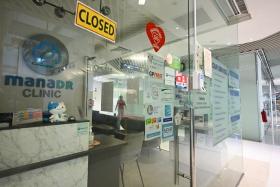Decisive action needed to fight diabetes: Gan
Health Minister said governments must have courage to take decisive action
The clock is ticking and countries must be prepared to take decisive action in their fight against diabetes, even if it involves some pain, Health Minister Gan Kim Yong said yesterday.
"This means moving fast as well as having the courage to persevere and do things that may be difficult or painful at times, but are important and beneficial in the long term," he said in his closing remarks at the two-day Ministerial Conference on Diabetes.
"We may not have the luxury of time as population ageing picks up momentum."
At the end of the event, in which 12 health ministers and representatives of the World Health Organisation took part, Mr Gan elaborated at a press conference that Singapore, too, has had to take such difficult steps in the course of its two-year war on diabetes.
One such move was highlighting the ethnic groups that were more vulnerable to diabetes.
"This was painful," he said.
In his National Day Rally last year, Prime Minister Lee Hsien Loong said: "Diabetes is a health crisis for Malays and Indians."
He released figures that showed that among adults, 17.2 per cent of Indians and 16.6 per cent of Malays here had diabetes, compared with 9.7 per cent of Chinese.
Telling people that they were getting a lot of sugar from white rice was also not easy. Mr Gan said many people were upset and felt that the Government was too intrusive.
But it has resulted in higher sales of brown rice, indicating healthier diets. Mr Gan said it is always difficult to swim against the tide, "but we just had to tell the truth".
As delegates from the 18 countries at the conference shared experiences, one tricky issue that came up was taxing sweet packaged drinks, which Singapore is examining.
Mr Gan said Malaysian Health Minister Dzulkefly Ahmad broached this but experts said it needed to be complemented with other measures.
He would not commit on whether Singapore plans to have such a tax, saying: "It is a complex problem that we need to consider very carefully."
Meanwhile, Senior Minister of State for Health and Transport Lam Pin Min pointed out that working with the industry, Singapore had cut the median sugar level of drinks in its local market from 9.5 per cent in 2007 to 5.9 per cent last year.
All health leaders agreed on the importance of prevention, and of providing people with information to help them switch to a healthier lifestyle.
Mr Gan said Singapore wants better food labelling to provide useful information. It is looking at what others have done, such as a "traffic light system", with green showing the food is healthy, amber for neutral and red for danger.
Mr Gan said: "We must try to shape the future of health promotion, prevention and care delivery by experimenting with game-changing concepts and innovations.
"If things do not work out as well as we expected, we will need the courage to quickly change course and relook at how to do better.
"We have seen how health technology rapidly transforms the way we deliver care, from telemedicine to personalised health apps."
The heads of various delegations also shared ways in which they were fighting the disease.
Dr Yasuhiro Suzuki, Japan's Vice-Minister for Health and Chief Medical and Global Health Officer, said one strategy is to use wearables, like step trackers, to coach people on how to change their lifestyles.
Mr Gan said the Health Promotion Board will be giving away trackers for people who take part in next year's National Steps Challenge.
Get The New Paper on your phone with the free TNP app. Download from the Apple App Store or Google Play Store now


